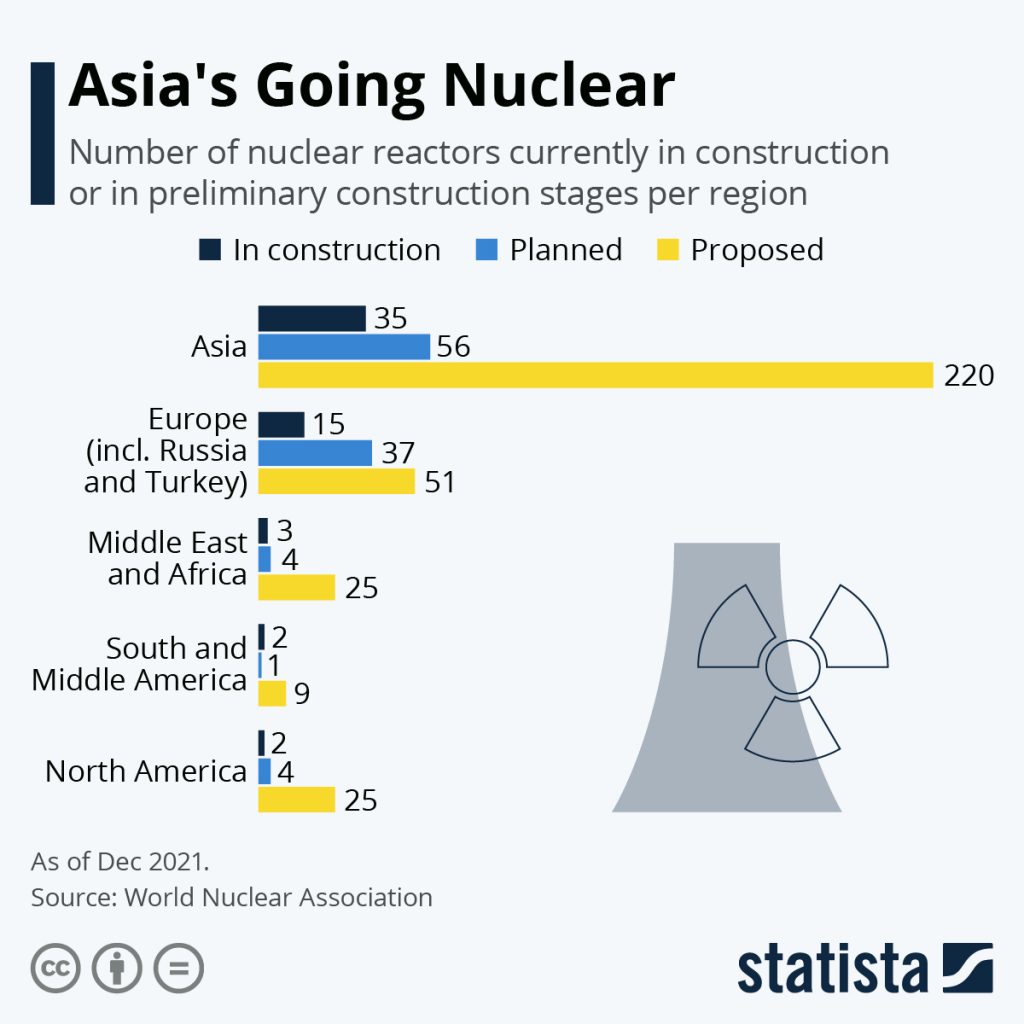Taps Coogan – January 5th, 2022
Enjoy The Sounding Line? Click here to subscribe for free.
Enjoy The Sounding Line? Click here to subscribe for free.
The following article is reposted from Statista.com:
After announcing its plans for a phase-out of nuclear power in 2000 and ramping up financial and infrastructural investments in renewable energy production since then, Germany is entering the home stretch: In the following weeks, the country will take offline three of its six remaining nuclear power plants, with the remaining three following at the end of 2022. Since there are no plans to build new reactors, this will make the European country only the second nation worldwide next to Italy to close down all preexisting nuclear reactors without constructing new ones so far. As our chart indicates, the rest of the world is not ready to ditch this power source quite yet.
Asia in particular is still big on nuclear power, even with the nuclear disaster at Fukushima happening as recently as 2011 and some neighboring regions still being visibly affected by the fallout to this day. Japan still has 33 reactors in commission while proposals, planning or construction have started on an additional eleven according to data by the World Nuclear Association. India plans to triple its number of nuclear power plants to 72 in total, while China has proposed the construction of 168 new reactors in addition to 18 being built and 37 being planned, which would amount to an increase of 337 percent. Overall, 35 reactors around Asia are already in construction, with Europe coming in second with 15 plants.
While the steady increase in energy consumption and the scarcity of fossil fuels like coal, crude oil and gas might make nuclear energy a viable, clean option on paper, the technology still poses a great many risks, especially when it comes to the correct disposal and storage of highly radioactive waste products and the condition of older plants. According to data by the International Atomic Energy Agency, two thirds of the 441 currently active nuclear power plants are older than 30 years, a fact that might make thinking about at least overhauling those plants instead of building new ones something to consider.

Would you like to be notified when we publish a new article on The Sounding Line? Click here to subscribe for free.
Would you like to be notified when we publish a new article on The Sounding Line? Click here to subscribe for free.

